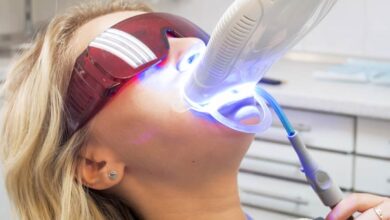Basic First Aid for Seniors: Addressing Age-Related Health Concerns
As individuals age, they may encounter specific health concerns that require careful attention and a nuanced approach to first aid. Understanding how to respond to age-related health issues is crucial for ensuring the well-being of seniors. In this comprehensive guide, we will explore basic first aid measures tailored to address the unique health concerns that seniors may face.
Common Health Concerns for Seniors
Before delving into first aid measures, it’s important to recognize some common health issues that seniors may experience:
- Falls: Seniors are more prone to falls due to factors such as reduced balance and muscle strength. Falls can lead to injuries like fractures and sprains.
- Heart Conditions: Conditions such as heart disease and hypertension are more prevalent in seniors, increasing the risk of heart-related emergencies.
- Respiratory Issues: Seniors may face respiratory challenges, making them susceptible to issues such as shortness of breath or respiratory infections.
- Diabetes: Managing blood sugar levels becomes increasingly important for seniors with diabetes, as imbalances can lead to serious complications.
- Dementia and Cognitive Decline: Seniors may experience cognitive decline, affecting their ability to communicate or respond to emergencies.
Basic First Aid for Seniors
Now, let’s explore basic first aid measures tailored to address these age-related health concerns:
1. Falls:
Encourage Seniors to Keep Active: Regular physical activity helps maintain muscle strength and balance, reducing the risk of falls.
Implement Fall Prevention Measures: Ensure homes are well-lit, remove tripping hazards, and install handrails in critical areas.
Immediate Response: If a senior falls, assess for injuries, encourage them to stay still, and call for medical help if needed.
2. Heart Conditions:
Know the Signs of a Heart Attack: Chest pain, shortness of breath, and discomfort in the upper body are common signs.
Call Emergency Services: If a senior exhibits signs of a heart attack, call 911 immediately.
Administer Aspirin if Advised: If the senior is not allergic to aspirin and it’s advised by a healthcare professional, provide a low dose to help thin the blood.
3. Respiratory Issues:
Assist with Breathing: If a senior experiences shortness of breath, help them find a comfortable position and encourage slow, deep breaths.
Use Oxygen if Prescribed: If the senior uses supplemental oxygen, assist them in using it as prescribed.
4. Diabetes:
Monitor Blood Sugar Levels: Help seniors monitor their blood sugar levels regularly, especially if they show signs of high or low blood sugar.
Provide Sugar: In the case of low blood sugar (hypoglycemia), provide a source of sugar, such as fruit juice or candy, if it’s safe to do so.
5. Dementia and Cognitive Decline:
Stay Calm and Reassuring: If a senior with cognitive decline is in distress, maintain a calm demeanor and provide reassurance.
Use Simple Language: When communicating, use simple and clear language to ensure understanding.
In conclusion, addressing age-related health concerns with basic first aid measures is vital for the well-being of seniors. By understanding their unique needs and taking proactive steps, we can contribute to a safer and healthier environment for our senior population. Always consult with healthcare professionals for personalized advice and guidance.




